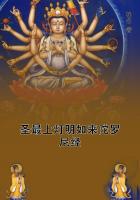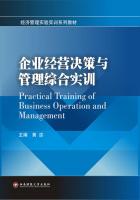ONE Sunday afternoon, Yakov Tarasovich Mayakin was drinking tea in his garden and talking to his daughter. The collar of his shirt unbuttoned, a towel wound round his neck, he sat on a bench under a canopy of verdant cherry-trees, waved his hands in the air, wiped the perspiration off his face, and incessantly poured forth into the air his brisk speech.
"The man who permits his belly to have the upper hand over him is a fool and a rogue! Is there nothing better in the world than eating and drinking? Upon what will you pride yourself before people, if you are like a hog?"The old man's eyes sparkled irritably and angrily, his lips twisted with contempt, and the wrinkles of his gloomy face quivered.
"If Foma were my own son, I would have made a man of him!"Playing with an acacia branch, Lubov mutely listened to her father's words, now and then casting a close and searching look in his agitated, quivering face. Growing older, she changed, without noticing it, her suspicious and cold relation toward the old man. In his words she now began to find the same ideas that were in her books, and this won her over on her father's side, involuntarily causing the girl to prefer his live words to the cold letters of the book. Always overwhelmed with business affairs, always alert and clever, he went his own way alone, and she perceived his solitude, knew how painful it was, and her relations toward her father grew in warmth. At times she even entered into arguments with the old man; he always regarded her remarks contemptuously and sarcastically; but more tenderly and attentively from time to time.
"If the deceased Ignat could read in the newspapers of the indecent life his son is leading, he would have killed Foma!"said Mayakin, striking the table with his fists. "How they have written it up! It's a disgrace!""He deserves it," said Lubov.
"I don't say it was done at random! They've barked at him, as was necessary. And who was it that got into such a fit of anger?""What difference does it make to you?" asked the girl.
"It's interesting to know. How cleverly the rascal described Foma's behaviour. Evidently he must have been with him and witnessed all the indecency himself.""Oh, no, he wouldn't go with Foma on a spree!' said Lubov, confidently, and blushed deeply at her father's searching look.
"So! You have fine acquaintances, Lubka! " said Mayakin with humorous bitterness. "Well, who wrote it?""What do you wish to know it for, papa?"
"Come, tell me!"
She had no desire to tell, but the old man persisted, and his voice was growing more and more dry and angry. Then she asked him uneasily:
"And you will not do him any ill for it?"
"I? I will--bite his head off! Fool! What can I do to him? They, these writers, are not a foolish lot and are therefore a power--a power, the devils! And I am not the governor, and even he cannot put one's hand out of joint or tie one's tongue. Like mice, they gnaw us little by little. And we have to poison them not with matches, but with roubles. Yes! Well, who is it?""Do you remember, when I was going to school, a Gymnasium student used to come up to us. Yozhov? Such a dark little fellow!""Mm! Of course, I saw him. I know him. So it's he?""Yes."
"The little mouse! Even at that time one could see already that something wrong would come out of him. Even then he stood in the way of other people. A bold boy he was. I should have looked after him then. Perhaps, I might have made a man of him."Lubov looked at her father, smiled inimically, and asked hotly:
"And isn't he who writes for newspapers a man?"For a long while, the old man did not answer his daughter.
Thoughtfully, he drummed with his fingers against the table and examined his face, which was reflected in the brightly polished brass of the samovar. Then he raised his head, winked his eyes and said impressively and irritably:
"They are not men, they are sores! The blood of the Russian people has become mixed, it has become mixed and spoiled, and from the bad blood have come all these book and newspaper-writers, these terrible Pharisees. They have broken out everywhere, and they are still breaking out, more and more.
Whence comes this spoiling of the blood? From slowness of motion.
Whence the mosquitoes, for instance? From the swamp. All sorts of uncleanliness multiply in stagnant waters. The same is true of a disordered life.""That isn't right, papa!" said Lubov, softly.
"What do you mean by--not right?"
"Writers are the most unselfish people, they are noble personalities! They don't want anything--all they strive for is justice--truth! They're not mosquitoes."Lubov grew excited as she lauded her beloved people; her face was flushed, and her eyes looked at her father with so much feeling, as though imploring him to believe her, being unable to convince him.
"Eh, you!" said the old man, with a sigh, interrupting her.















